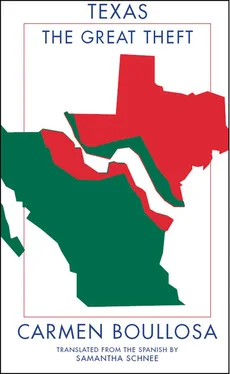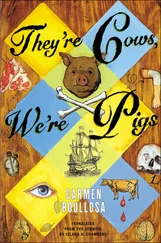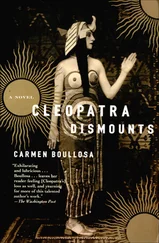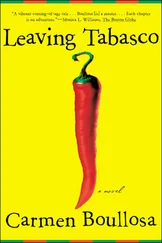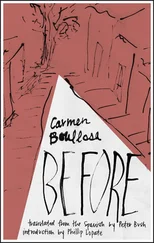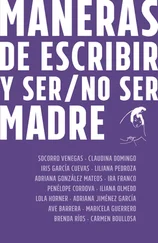Bob Chess wants money and absolute power to enjoy himself as he pleases. No faggotry for him — sitting around drinking, rocking a baby, doing needlepoint — and that’s why he doesn’t like games, music, dancing, fine food, or any other (“idiotic”) aspect of domestic life. “My ten commandments for being a real man: First commandment — Sleep in the open air; Second — Eat meat roasted on an open fire; Third — Have a woman once a month; Fourth — Never get drunk; Fifth — Increase your landholdings; Sixth — Never speak to a Negro, or a Mexican; Seventh — Do not attend church or temple; Eighth — Get around on a horse, never on wheels, which are for the lazy (and are the source of all evil); Ninth — Always have a pistol on your hip; and the Tenth commandment — Love yourself as yourself.”
He follows his commandments, more or less. He never sleeps in the open air—“It’s just a saying, sometimes the open air’s not good for you; if we were on the prairies it would be a different story”—he rents a room in Mrs. Big’s Hotel, a real luxury for him since, as a boy, he never slept in his own bed. (“Who woulda thunk it!” his mama would have said, “A mattress makes you soft.” And by “mattress” she meant thin cotton mat.) He likes (and how!) a good meal — which some would say is the most sedentary aspect of domestic life. He doesn’t ride because the saddle and the motion of the horse are no good for his hemorrhoids. And he doesn’t have a woman on a monthly basis, just whenever the opportunity arises.
He always wears a hat — despite the fact it’s not one of his commandments.
The Kwahadis, invincible Comanches who refuse to have anything to do with the gringos (they prefer to trade with the Mexicans), receive another Born-to-Run on the high plains, five thousand feet above sea level, in Indian Territory (which the Mexicans call the Apachería ), past the Llano Estacado and the Caprock escarpment, a three-hundred-foot cliff that separates the high plains from the Permian basin.
The Kwahadis are renowned for their violence. They are experts at battle. No one lives to tell about a Kwahadi attack unless they’re taken captive. And fighting isn’t their only distinctive characteristic. They can withstand anything. If they can’t find water, they drink from the stomachs of dead horses. The rest of the Comanches fear them. They’re the wealthiest Indians, they have more than 15,000 tame horses. Their camp is deep in the Palo Duro Canyon (second in size only to the Grand Canyon), and they roam the Pease River, McClellan Creek, and Blanco Canyon.
Their battle strategy is difficult to decipher.
Rawhide (the newest Kwahadi — a few months ago he was taken captive by the Comanches, who bought him to have someone who could read, to be able to communicate — takes care of both verbal and written correspondence at the camp) listens to the message.
Rawhide asks the messenger to wait, and delivers the news to Chief Smells Good.
The Born-to-Run waits. Since he doesn’t have farther to go, he doesn’t drink from his jug of poison. He squats and waits.
The Kwahadi chief, Smells Good, is preparing to lead an attack. Naked to the waist, his face daubed with black war paint, he wears a long eagle-feather headdress that flies out behind him on horseback, he leans back, his headdress nearly skimming the ground, his copper earrings jingling in the air, leaving everyone speechless. Especially Rawhide.
“Speak!” Chief Smells Good says, when he sees Rawhide, the newest Kwahadi, standing before him, immobile. He understands he brings a message.
“Chief Smells Good …”
“Speak!”
Rawhide knows that delivering unwelcome news will imperil him, if the chief doesn’t like the message he may pay with his life. He masters his fears and relays the Born-to-Run’s news.
Smells Good listens. He departs without a word. He tells the shaman, Sky Bullet (who has also just finished preparing for battle, with war paint and his headdress) what he’s just heard. Seconds pass. Sky Bullet pronounces: “A good sign, a good sign.”
They exchange a few words.
Certain the news brings good luck, they give Rawhide orders.
They have decided to sacrifice the Born-to-Run. It’s nothing out of the ordinary, and not worth us dwelling on. They keep his scalp and his magical jug. They depart camp ululating.
We’ll leave them to their business, which doesn’t have much to do with us.
Rawhide doesn’t participate in the attack, he stays in camp with a group of elders — his guards — responsible for looking after the slowest livestock. He writes a message and ties it to the Kwahadis’ only messenger pigeon, Penny.
Penny flies south across Indian Territory, to a nearby Comanche camp. The captives, who are well cared for because they will be traded (Mexicans, gringos, Germans; all young men who are treated like the finest livestock), listen to the news as it is announced by the tribe’s herald. The majority don’t like it, but there are a few who have unfinished business with Nepomuceno and celebrate it.
The Comanches ignore the news. They couldn’t care less about Nepomuceno, some sheriff, some shitty town. They were hoping for a different message, a response to their earlier one. Now they worry that the Kwahadis have decided to attack.

LET’S BACK UP A LITTLE. The pigeons are on the wing, the Born-to-Run streak across the prairie, the white horseman crosses the Valley like lightning, the falcon hunts its prey, Indians rush around getting decked out for their attack, but not a soul stops at the Aunts’ Ranch — no one dares call these women what they really are: Amazons.
It’s something to see, the entrance to this ranch, painted with Teresita’s family tree (flowers, leaves, and names all painted in bold, harmonious colors). There’s no wall, just this entrance.
The inhabitants of the Aunts’ Ranch are unusual on the Great Plains, some even claim their ranch doesn’t exist. They live in the open air like cowboys on the trail; they use lassos; they know how to use pistols; they can’t stand farming; and they hate living under a roof, with two exceptions: a pale-faced blonde, Peladita, who sews like a madwoman, all night and all day, waiting for her Ulises to return (an ill-tempered Mexican who, needless to say, has no intention of coming back for her); that’s her story. The other is a different kettle of fish: she’s ancient, and though she’s wrinkled like a raisin, her nose grown long, she looks almost childlike. She was once kidnapped and no longer remembers anything else. You can’t set foot on the Aunts’ Ranch without hearing all about her kidnapping.
The other Aunts just let her be.
The Aunts chatter:
“Don’t dismount here, no way. On this ranch we ride like the wind. No one falls to their knees at Aunts’ Ranch, no one defers to a superior. We’re all queens. And here’s the thing: we ride so fast we could fly, all we need are wings.”
“We tame mustangs. Twelve handy, pistol-packing women who defeat anyone who dares to take us on.”
“No one sets foot here without asking our permission. Nobody even dares to take a drop of water from our well without asking first.”
“The chickens roam free.”
“The donkeys sleep where they want.”
“We drink when we feel like it, the good stuff.”
“We have sex with each other if we want, and no one takes it the wrong way or thinks they’re sinning.”
“You bet!”
“We dance until daybreak.”
“We’re amazing cooks.”
“Only Doña Estefanía cooks better than us; better to admit it than get found out.”
“What good is it to her, to have so much land, livestock, and money? It’s better to be free.”
Читать дальше
